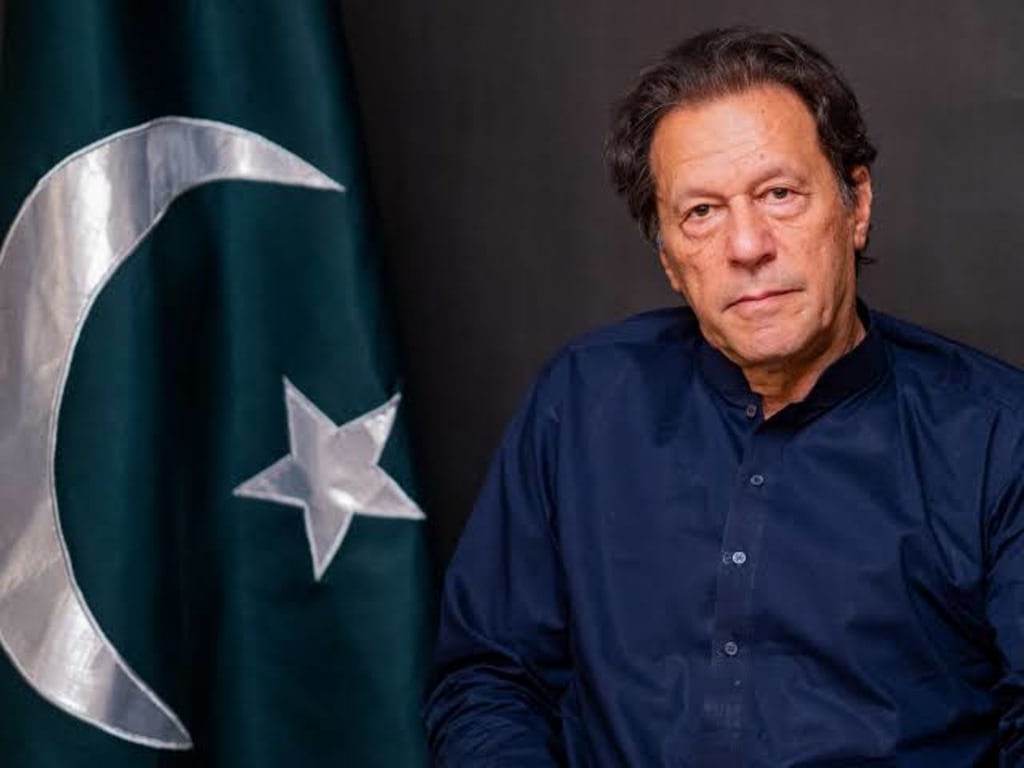Ex Prime Minister of “Pakistan” Imran khan
Imran khan

Imran Khan served as the Prime Minister of Pakistan from August 2018 to June 2021. He is a former cricketer and captain of the Pakistan national cricket team, having led the team to victory in the 1992 Cricket World Cup. Imran Khan entered politics in the late 1990s and founded the political party Pakistan Tehreek-e-Insaf (PTI) in 1996.
During his tenure as Prime Minister, Imran Khan focused on various initiatives, including combating corruption, promoting social welfare, and improving governance. His government implemented reforms in key sectors such as education, health, and poverty alleviation. He also prioritized environmental conservation and launched the Ten Billion Tree Tsunami project to tackle deforestation and climate change.
Imran Khan's government faced numerous challenges during its tenure, including economic issues, security concerns, and political opposition. However, his leadership style and policy decisions have been both praised and criticized by different segments of society. It's important to note that my knowledge is up until September 2021, so for more recent developments, it would be best to refer to the latest news sources.
1. Early Life and Cricket Career: Imran Khan was born on October 5, 1952, in Lahore, Pakistan. He studied at the University of Oxford and pursued a degree in Politics and Economics. Imran Khan made his debut in international cricket in 1971 and went on to become one of Pakistan’s most successful cricketers. He captained the national team from 1982 to 1992 and achieved significant success, culminating in Pakistan’s first Cricket World Cup victory in 1992.
2. Philanthropy and Social Work: Imran Khan is known for his philanthropic endeavors. In 1991, he founded Shaukat Khanum Memorial Cancer Hospital & Research Centre, named after his mother. The hospital provides free cancer treatment to underprivileged patients. He also established Namal University, a nonprofit university focusing on science and technology education, in Mianwali, Pakistan.
3. Political Career: Imran Khan entered politics in the late 1990s, advocating for social justice and anti-corruption measures. In 1996, he founded the Pakistan Tehreek-e-Insaf (PTI) party. While his party faced challenges in its early years, it gained momentum over time and became one of the major political forces in Pakistan.
4. Prime Ministerial Tenure: Imran Khan’s PTI party emerged as the largest party in the 2018 general elections, and he took office as the 22nd Prime Minister of Pakistan on August 18, 2018. His government focused on tackling corruption, improving governance, and implementing socioeconomic reforms. Notable initiatives included the establishment of the Ehsaas program for social welfare, the construction of affordable housing under the Naya Pakistan Housing Scheme, and the introduction of the Kamyab Jawan Program to support youth entrepreneurship.
5. Foreign Policy and Regional Relations: Imran Khan’s government sought to improve Pakistan’s relations with neighboring countries and engage in regional diplomacy. He played a role in facilitating peace talks between the Afghan Taliban and the United States. The Kartarpur Corridor, a visa-free border crossing between India and Pakistan, was inaugurated during his tenure to facilitate Sikh pilgrims’ visits to a holy shrine.
Remember that my information is based on data available up until September 2021, so for the most recent developments, it’s best to consult up-to-date sources or news outlets.
6. Economic Policies: During his tenure as Prime Minister, Imran Khan’s government faced significant economic challenges. They implemented measures to stabilize the economy, including seeking financial assistance from international institutions such as the International Monetary Fund (IMF). The government also focused on attracting foreign investment, promoting ease of doing business, and launching infrastructure development projects like the China-Pakistan Economic Corridor (CPEC).
7. Human Rights and Social Issues: Imran Khan’s government took steps to address human rights issues and promote social inclusion. They introduced legislation to protect the rights of marginalized groups, including women, children, and minorities. Efforts were made to strengthen women’s empowerment and improve access to education and healthcare services.
8. Media and Freedom of Expression: There were debates and concerns about media freedom during Imran Khan’s tenure. Critics raised questions about press freedom and censorship, expressing concerns about the government’s control over media outlets and alleged crackdowns on journalists. However, the government has maintained that it supports freedom of expression and aims to ensure responsible journalism.
9. Political Challenges and Opposition: Imran Khan’s government faced political challenges and opposition from rival political parties. Protests and demonstrations were staged by opposition parties over various issues, including allegations of electoral rigging and economic policies. These challenges led to a dynamic political landscape and debates within Pakistan’s political sphere.
10. Transition and Recent Developments: Imran Khan’s government completed its tenure in June 2021. After the completion of his term, a transition of power took place, and a new Prime Minister was elected. Since my knowledge is up until September 2021, I may not have the most recent information on Imran Khan’s activities or the latest political developments in Pakistan.
It’s important to stay updated with current news and reliable sources to obtain the most recent information about Imran Khan and the political landscape in Pakistan.
About the Creator
Enjoyed the story? Support the Creator.
Subscribe for free to receive all their stories in your feed. You could also pledge your support or give them a one-off tip, letting them know you appreciate their work.





Comments
There are no comments for this story
Be the first to respond and start the conversation.